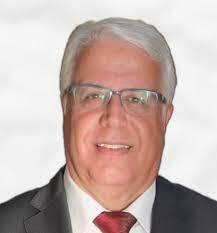Social media was abuzz with comments describing the reprehensible activities that took place in two Jerusalem schools. The discussions showed a dangerous aspect that is consistent with the occupation's plans aimed at Judaizing the city, seizing its components, and separating it from its national incubator.
I have already mentioned in a previous article the studies issued by the Israeli "Jerusalem Institute for Policy Research" for the benefit of the official Israeli institution, including studies on the implementation of Israeli Cabinet Resolution No. 3790 on social and economic development in East Jerusalem.
The studies prepared by the aforementioned “Institute” review the development of Israeli policy in Jerusalem and its persistent attempts to neutralize the role of the Jordanian government and the Palestine Liberation Organization until 1987 to end their influence on the scene in Jerusalem and on the orientations of the various Jerusalemite institutions, which collectively represented the national identity of Jerusalemites.
The Institute's studies add that the diplomatic missions in East Jerusalem have been practicing their activities only after the "acknowledgment and blessing" of the Jordanian government and the Palestine Liberation Organization, in full view of the Israeli government.
As for educational institutions, the Palestine Liberation Organization and the concerned Jordanian institution enabled them to stand as a bulwark against attempts of enticement and intimidation, to remain a haven for preserving the authentic national narrative. The failure of the Israeli governments is evident from achieving a turn in their favor that enables them to control Jerusalem and its components during that period. At the end of the year 1978, the national uprising broke out from the heart of the city of Jerusalem and the rest of Palestine, so that all Palestinians would declare their rejection of the perpetual occupation and its oppression and their right to self-determination.
The Institute's studies suggest that the historical "turn" that announced a change in the scene took place with the end of the popular uprising, the signing of peace agreements, and the establishment of the Palestinian National Authority in 1994, which was entrusted with tasks that were exclusive to the Palestine Liberation Organization. The "turn" began, as suggested by the Institute's studies, with the transfer of the center of political action from the city of Jerusalem to the city of Ramallah, which formed the "temporary" political capital of the Palestinian National Authority.
With this turning point, the important national institutions began to move from the city of Jerusalem to the city of Ramallah, and it was agreed to establish foreign diplomatic "representations" accredited to the Palestinian Authority in the city of Ramallah. To empty the city of Jerusalem of its national dimension, and with it to expose the Jerusalemite community, which has always been a faithful guard of Jerusalem and its institutions, in front of the occupation.
In view of the decline in the role of the Palestine Liberation Organization and the involvement of the Palestinian National Authority in establishing and managing its young institutions, the Israeli establishment found the opportunity to implement its plans and impose its control over the city and its components. And isolating Jerusalem from its surroundings and stripping it “geographically” from the areas of the Palestinian National Authority. Within this context, the studies add, that the political, social, cultural and other life has completely shifted to the city of Ramallah after it was populated in the city of Jerusalem.
The Institute's studies on the recommendation for draft resolution 3790 conclude that the gap between civil society and the components of East Jerusalem on the one hand, and the Palestinian National Authority on the other hand has worsened significantly, and that the growth of "regional patriotism" for the holy people has opened an opportunity for dialogue between actors, individuals and institutions, within the Jerusalemite community and the Israeli establishment. And that what contributes to achieving them is the widening of the differences between the Palestinian factions and their negative impact on the Palestinian society and Jerusalemites in particular.
In conclusion: Last Tuesday coincided with the anniversary of the death of the late Faisal Al-Husseini, "Prince of Jerusalem," so may his soul and the souls of the loyal sons of Palestine who perished while struggling together, have all the mercy.








Share your opinion
In Jerusalem, Jerusalemites and the national authority